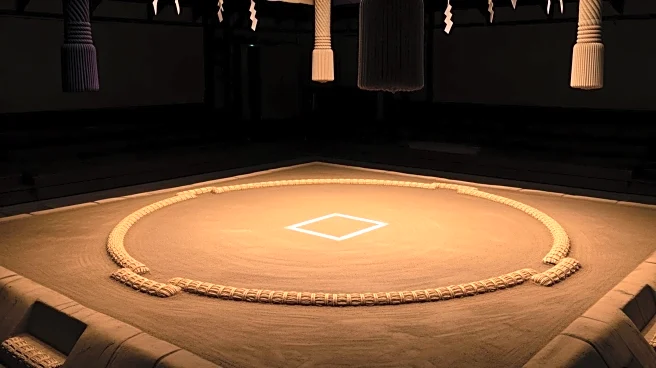What's Happening?
Sanae Takaichi, Japan's first female prime minister, is confronted with the traditional ban on women entering the sumo ring. Historically, male prime ministers have entered the ring to present the Prime Minister's Cup at sumo tournaments. Takaichi, known
for her conservative views, may not challenge this tradition, especially as she returns from the G20 summit in South Africa. The debate over the exclusion of women from the sumo ring and other religious sites continues, highlighting the tension between traditional values and modern gender roles in Japan.
Why It's Important?
The issue underscores the ongoing struggle for gender equality in Japan, a country where traditional gender roles are deeply entrenched. The sumo ring ban is part of a broader cultural and religious context that restricts women's participation in certain areas. As Japan's leader, Takaichi's stance could influence public opinion and policy regarding gender equality. Her decision may impact Japan's international image, especially in terms of gender rights, and could affect her political support among conservative voters.
What's Next?
Takaichi's next opportunity to address the sumo ring tradition will be at the New Year's tournament in Tokyo. The ongoing debate may prompt further discussions on gender equality in Japan, potentially leading to policy changes. Stakeholders, including women's rights groups and traditionalists, will likely continue to voice their opinions, influencing public discourse and possibly legislative action.
Beyond the Headlines
The sumo ring ban reflects broader cultural and religious beliefs about female impurity, rooted in historical practices. This taboo is part of a larger pattern of gender-based restrictions in Japan, which have been challenged over time. The issue raises questions about the intersection of tradition, religion, and modern gender roles, and how societies reconcile these elements.
















